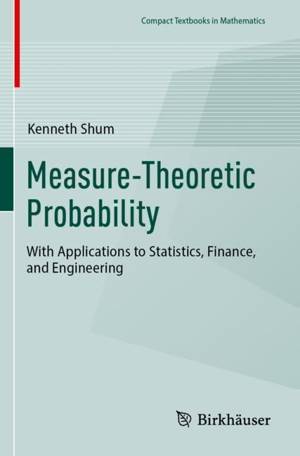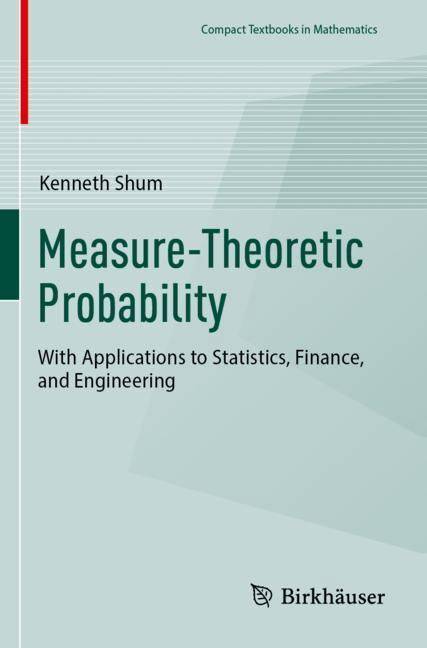
- Retrait gratuit dans votre magasin Club
- 7.000.000 titres dans notre catalogue
- Payer en toute sécurité
- Toujours un magasin près de chez vous
- Retrait gratuit dans votre magasin Club
- 7.000.0000 titres dans notre catalogue
- Payer en toute sécurité
- Toujours un magasin près de chez vous
Measure-Theoretic Probability
With Applications to Statistics, Finance, and Engineering
Kenneth ShumDescription
This textbook offers an approachable introduction to measure-theoretic probability, illustrating core concepts with examples from statistics and engineering. The author presents complex concepts in a succinct manner, making otherwise intimidating material approachable to undergraduates who are not necessarily studying mathematics as their major. Throughout, readers will learn how probability serves as the language in a variety of exciting fields. Specific applications covered include the coupon collector's problem, Monte Carlo integration in finance, data compression in information theory, and more.
Measure-Theoretic Probability is ideal for a one-semester course and will best suit undergraduates studying statistics, data science, financial engineering, and economics who want to understand and apply more advanced ideas from probability to their disciplines. As a concise and rigorous introduction to measure-theoretic probability, it is also suitable for self-study.Prerequisites include a basic knowledge of probability and elementary concepts from real analysis.
Spécifications
Parties prenantes
- Auteur(s) :
- Editeur:
Contenu
- Nombre de pages :
- 259
- Langue:
- Anglais
- Collection :
Caractéristiques
- EAN:
- 9783031498329
- Date de parution :
- 31-03-24
- Format:
- Livre broché
- Format numérique:
- Trade paperback (VS)
- Dimensions :
- 157 mm x 236 mm
- Poids :
- 408 g

Les avis
Nous publions uniquement les avis qui respectent les conditions requises. Consultez nos conditions pour les avis.






